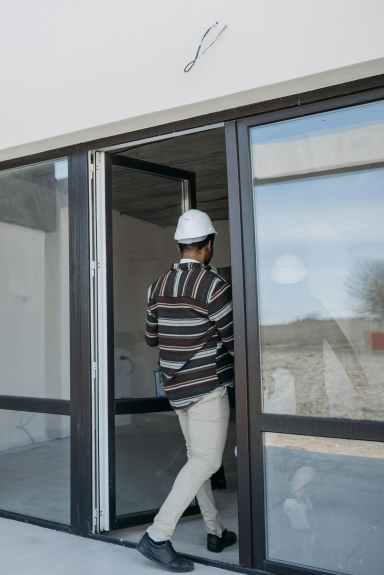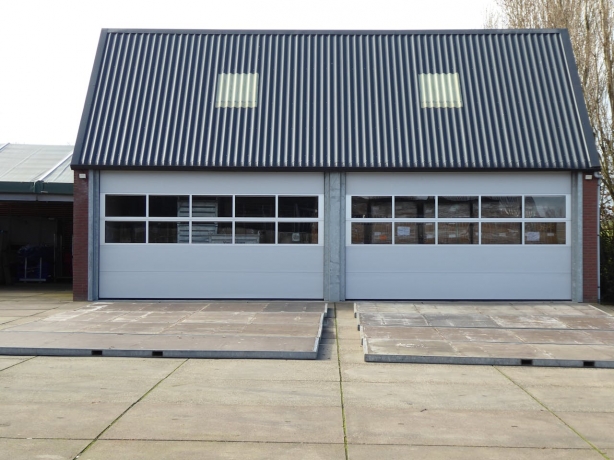Many people think that all doors are the same and that you can use doors for commercial and residential locations interchangeably. This is not actually the case. There are many differences between residential doors and commercial doors. Knowing which is which is important if you are shopping for doors that are appropriate for your commercial location.
Cdidoors.com can help you to get access to the right doors for any kind of business. Being sure that your property is secure, safe in the case of a fire, or aesthetically inviting is important. You should never have to question if you have gotten an appropriate or useful door for your business location. This guide will help you to know the difference between commercial and residential doors.
Differences Between Commercial and Residential Doors
These are the most obvious ways to identify differences between commercial and residential doors when you are looking at your options. Having these considerations in mind will make it easier to find the right kind of door for your needs with ease.
1. Size and Thickness
Modern commercial entry doors are larger and taller than residential doors. This might not be the case in some older properties, but in any recent construction project, a commercial building will require wider and taller doors than houses. Most building codes will dictate that doors in a business location are at least 32 inches wide with a maximum of 48 inches. The one exception is usually medical facilities, which require doors to be wider to fit gurneys through.
The height of most commercial doors will be 80 inches, and you might also notice that the doors are made of thicker materials. Commercial entry doors are often much better insulated than residential doors, which is immediately obvious when you push the door open and notice the added weight required to move it.
Most residential doors vary from 24 to 28 inches wide, with maximum widths being 36 inches. They might be as tall as the standard commercial door at 80 inches but are often 76 inches or 78 inches in height.
2. Hardware
Commercial doors are intended to be used much harder than residential doors. They will be opened more often, and they might be opened with force from time to time. This means that commercial hardware for entry and exit doors is usually ASI grade one or two. One is the most heavy-duty, and you will see this hardware in industrial and factory settings in most cases.
Commercial buildings also often require that the hardware is UL Listing and ADA Compliant. Residential hardware does not have to meet these stringent requirements. Residential doors might only be opened once or twice during any given day, which means that the strength and safety of the hardware on these doors are not under intense scrutiny.

3. Material
Commercial properties almost always require doors that are made of tougher materials than those that are used in residential applications. Between concerns over security and risks of things like fires, commercial-grade doors are often made of materials that are reinforced with steel or aluminum. These doors might also be fire-rated, which is not common in residential applications.
Residential entry doors are usually made of wood, metal, or fiberglass, and they might only be fitted with a simple deadbolt for security. Commercial doors need to be thick enough to withstand force and maintain security.
4. Locks
Locks in business use cases will have to be of a higher grade than residential locks. They will typically be grade 1 locks, which are the strongest and heaviest options on the market. These locks might also be reinforced for security purposes with keyless or card-based entry, which often requires a thicker and more durable door.
Locks for business doors need to withstand constant use without breaking. Residential-quality locks would typically not hold up to the routine use that commercial building locking mechanisms are exposed to.
5. Cost
Residential entry doors can be expensive if they are very ornate or made of rare materials, but most residential doors will cost far less than their commercial counterparts. Commercial doors are typically expensive because they are made with security in mind and they are designed to be very durable. You will find that improved hardware, locking mechanisms, and fire-proof materials are all spendy.
That being said, your commercial door should hold up to years of use with ease. Even if you invest in a spendy residential door for your business property, it is not likely to withstand the daily demands of a business property.
6. Special Access
Some businesses need to be concerned with building codes that require specific kinds of access to the business location and many companies need to be sure that they are ADA-compliant. This means that the doors that are suitable for your home might not meet these standards for your business property. You can look up the building code in your area to find out what your business requirements are when it comes to access.
Businesses that do not comply with code or federal regulations can be sued, so it is a big deal to be sure that you are not cutting corners when it comes to this critical aspect of your business property safety and security.

Getting The Right Commercial Doors Matters
Having the right doors at your entry and exit points for your business is key. You will improve the aesthetics and the safety of your business by investing in quality doors that will hold up to the test of time. Make sure that you are familiar with business codes and requirements in your area before you purchase doors for your business. Also, be sure to work with a skilled supplier so that you can be certain that you are getting quality doors that will hold up to years of use with ease.
Having the right doors in place for your business location can be the difference between a successful company and one that doesn't get off the ground. Don't cut corners for this important part of your business design.






